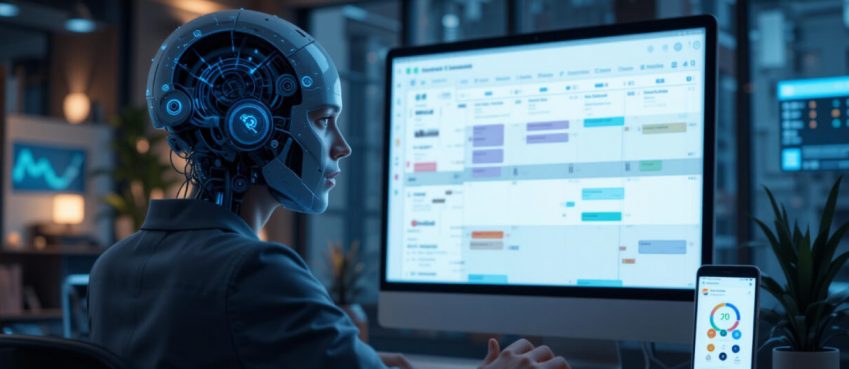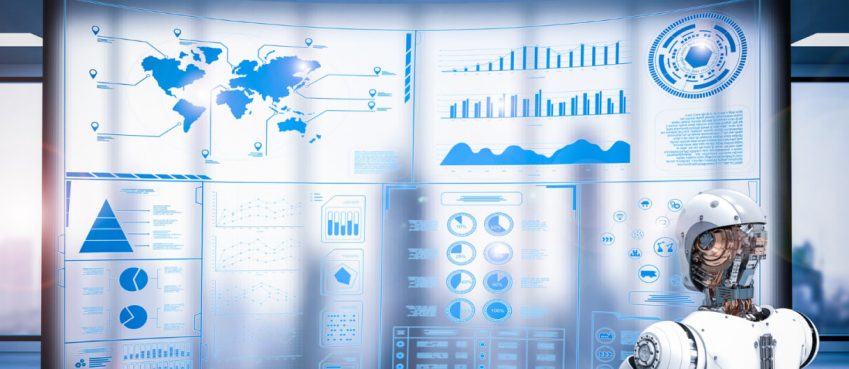
Undiscovered machine failures can be the most costly. Many manufacturing companies are searching for ways to automate their maintenance and lower costs. In many cases, traditional Vitro diagnostics can prove too late. Sometimes, readings taken in the presence of a diagnostician may not reveal a fault in advance. 2017 Deloitte Position Paper (Deloitte Analytics Institute 7, 2017) stated that predictive maintenance is beneficial in an environment like Industry 4.0. Deloitte analysis at the time showed that material costs can be reduced by 5-10% on average. Equipment uptime rises by 10-20%. Maintenance costs can be reduced by between 5 and 10%, and planning time for maintenance can be reduced by up to 20 to 50%. Neuron Soundware developed an artificial intelligence-powered technology for predictive maintenance.
Qualified Maintenance Workers – Very common Problem
These stories from companies who have taken the digital leap are not science fiction. These stories are real examples of companies coping with the shortage of skilled labor. A mechanic-maintainer is someone who inspects all machines and diagnoses any problems by listening to what they say. Companies are looking for new maintenance technologies.
Failure without prompt identification can lead to the replacement of the entire equipment or part. Waiting to order the spare part that may not be available right away. It is costly to stock replacement equipment. The entire production run will be thrown out due to the devaluation of all the components currently in production. It would also cause up to XY hours of production downtime. These losses could amount to tens of thousands of euros.
Also read: 10 Best Paid Online Survey Websites In The WorldReal-Time Machine Monitoring is A Hot Trend
This is possible when the maintenance technology has artificial Intelligence as well as the mechanical knowledge of machines. This knowledge is applied to the current machine state. It can also recognize any abnormal behavior that is occurring on the machine. It then sends the appropriate alert and provides detailed maintenance instructions. This is how manufacturers of mobile equipment, such as lifts and escalators, use it today.
AI can Assist in All Stages of Production
Predictive maintenance technologies are also useful in other areas. They are versatile thanks to their learning capabilities. The technology can assist with end-of-line tests. It can be used, for example, to detect defective parts in manufactured goods that are not visible to the eye but appear randomly.
Monitoring production processes is the second area of application. This is illustrated by a gravel crusher. The conveyor transports different sizes of stone to grinders that are designed to produce a certain granularity. The crusher was used for a set amount of time by the manufacturer. This was to ensure that the crusher could be used for crushing large pieces of rock. Artificial intelligence can “listen” to the size and shape of gravel. He can stop crushing at the correct point. This not only saves wear on the crushing equipment but also increases the amount of gravel per shift. The producer reaps great financial benefits from this.
Also read: Best 10 Semrush Alternative For 2025 (Free & Paid)Companies with Many Identical Assets are Likely to Save The Most
It doesn’t matter how large your company is when you implement predictive maintenance technology. Scalability is the most important decision criterion. It is possible to quickly gather samples from companies that have many mechanically identical devices. The neural network then learns. The neural network can handle multiple machines simultaneously. There are more chances for neural network learning and applying detection of undesirable sounds to more machines.
Predictive Maintenance is The Future: it’s Possible and Omnipresent
Condition monitoring technology is usually better suited for large plants than for smaller workshops that only have a handful of machine tools. The technology is improving as the hardware and data transfer and processing become cheaper. Even a home marmalade manufacturer will soon be able to trust that his machines will produce enough product, deliver orders on time, and not damage its reputation.
Predictive maintenance will become a requirement in the future. The industry will also use predictive maintenance in large electronic appliances like refrigerators and coffee makers, as well as in cars. We can recognize an engine that is unusually loud or damaged, for example. It is sometimes too late to safely drive your car home after a vacation. Without a workshop visit, for example. The installation of an AI-driven detection system will allow us to detect the impending failure in real-time. We can then resolve the problem before the engine stalls and we need to call a towing company.
Top 10 News
-
01
Top 10 Deep Learning Multimodal Models & Their Uses
Tuesday August 12, 2025
-
02
10 Google AI Mode Facts That Every SEOs Should Know (And Wha...
Friday July 4, 2025
-
03
Top 10 visionOS 26 Features & Announcement (With Video)
Thursday June 12, 2025
-
04
Top 10 Veo 3 AI Video Generators in 2025 (Compared & Te...
Tuesday June 10, 2025
-
05
Top 10 AI GPUs That Can Increase Work Productivity By 30% (W...
Wednesday May 28, 2025
-
06
[10 BEST] AI Influencer Generator Apps Trending Right Now
Monday March 17, 2025
-
07
The 10 Best Companies Providing Electric Fencing For Busines...
Tuesday March 11, 2025
-
08
Top 10 Social Security Fairness Act Benefits In 2025
Wednesday March 5, 2025
-
09
Top 10 AI Infrastructure Companies In The World
Tuesday February 11, 2025
-
10
What Are Top 10 Blood Thinners To Minimize Heart Disease?
Wednesday January 22, 2025







